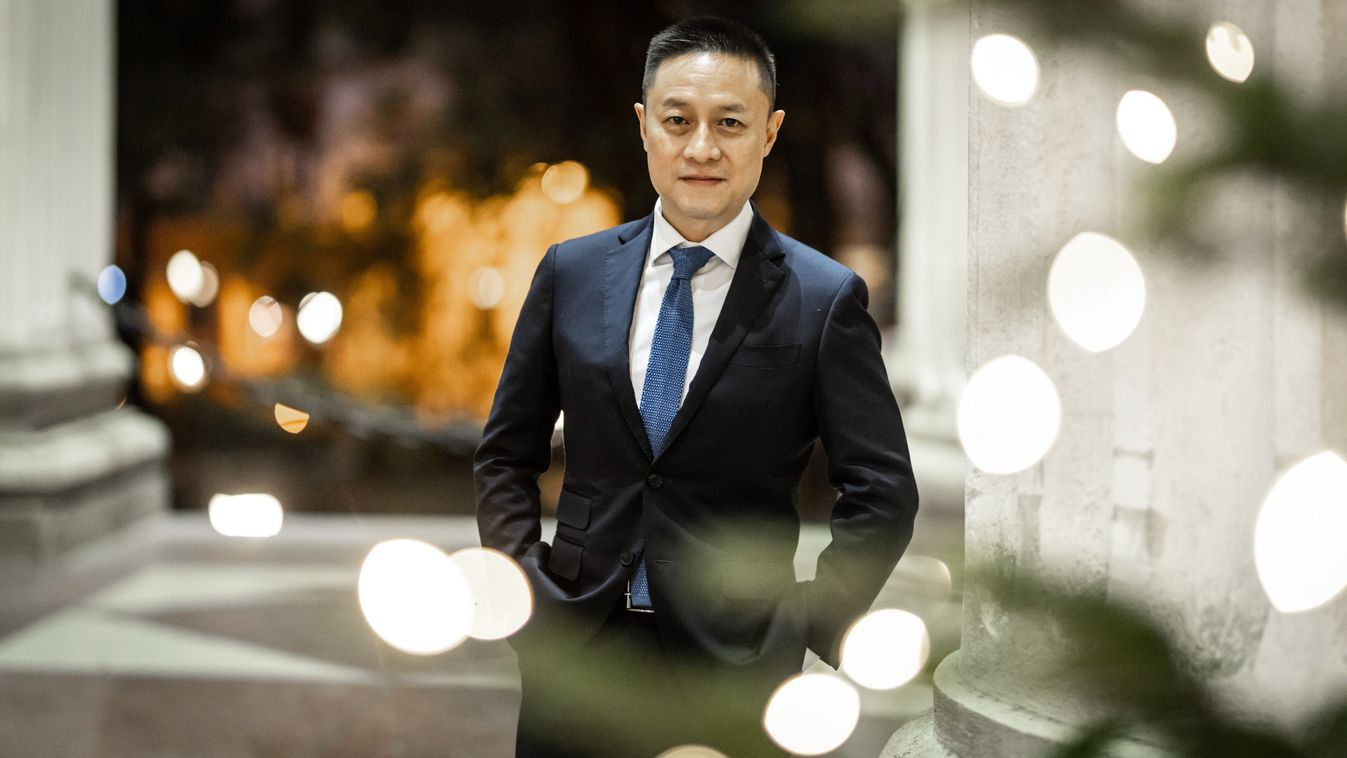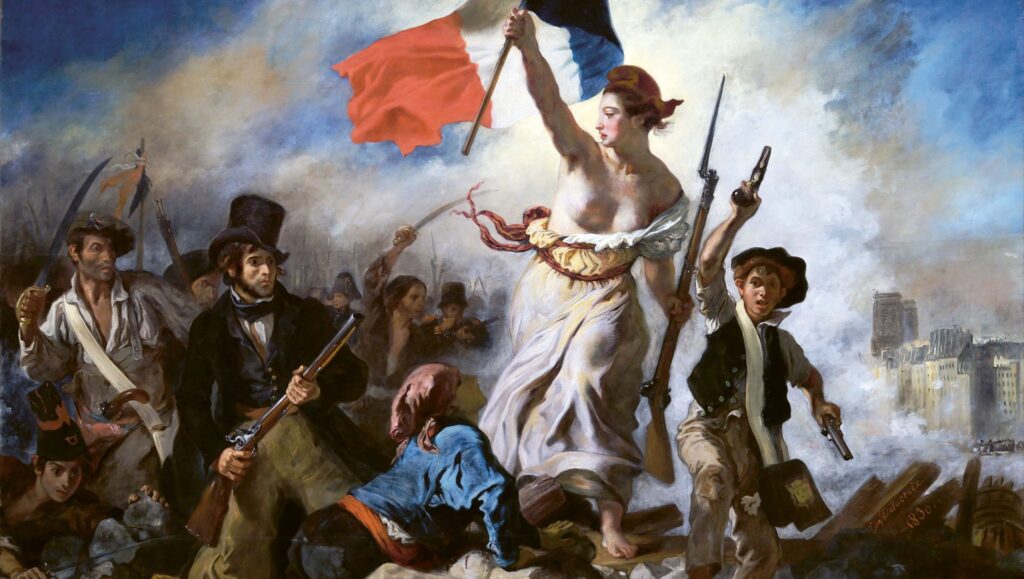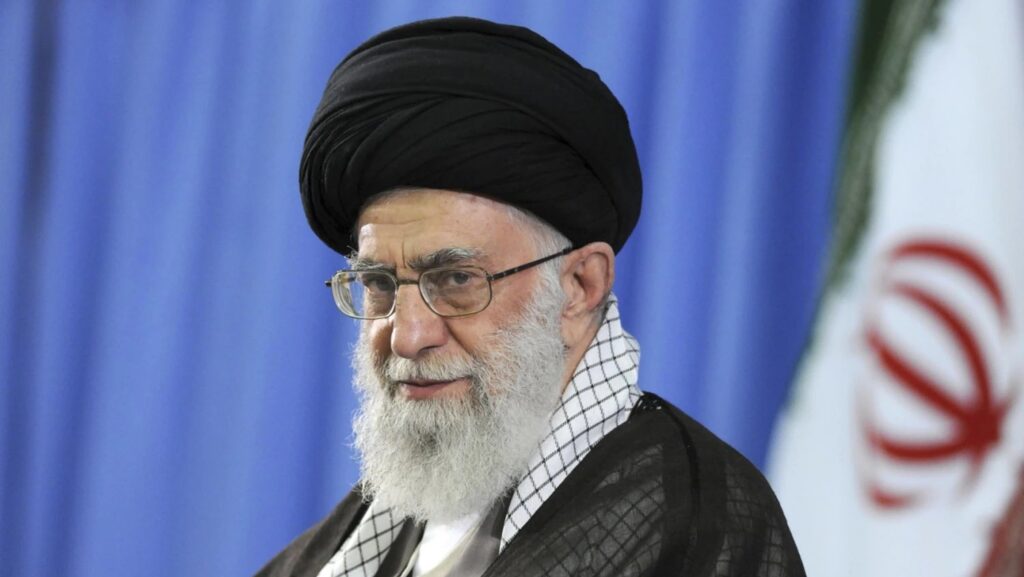Millions of people read the news website founded by Eric Li every day; the political scientist has explained to Mandiner how Hungary can play a big role in the world.
The conference of the Hungarian Institute of International Affairs and the Observer Research Foundation was held on 13 December at the National Museum. The aim of the event was for Hungary to build strong institutional links with actors in the Global South, including the countries of the South and Southeast Asian region. Hungary intends to play a leading role in providing a voice for the Global South in the Western world and the European Union. The event, titled Budapest Global Dialogue, was attended by several world-renowned experts. Mandiner asked Eric Li, founder of the Chinese news website Guancha.cn, about Hungary, the lessons to be learned from 2024, and what lies ahead for China in the coming year.
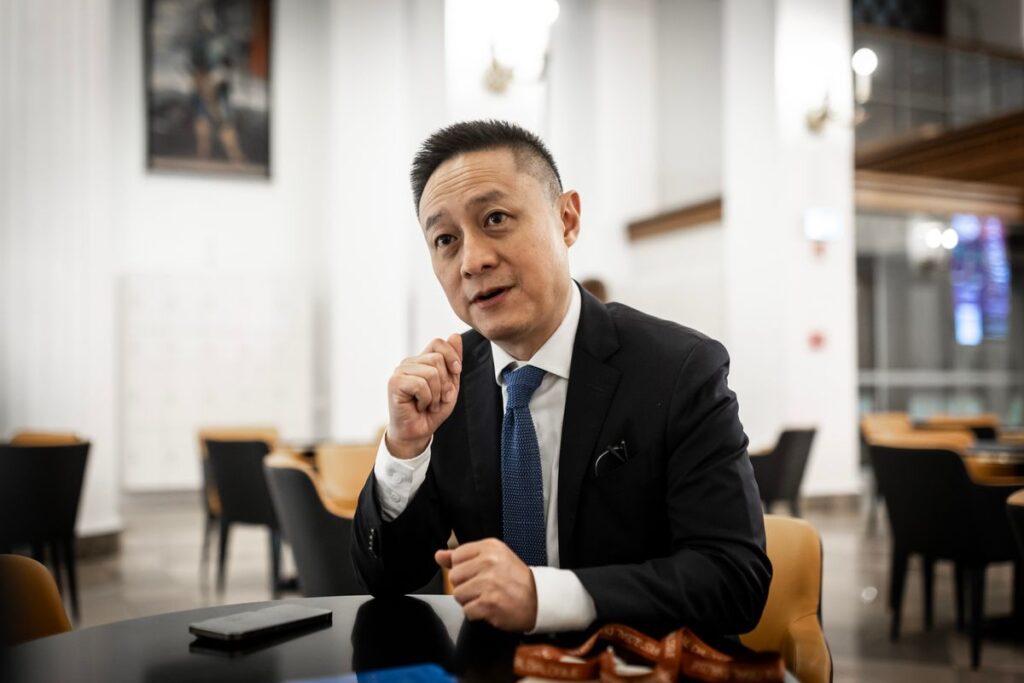
Guancha.cn (Chinese: 观察者网; meaning ‘to watch’) is a Shanghai-based Chinese news website founded by Eric Li, a Stanford-educated venture capitalist and political scientist at Fudan University. It is primarily centred on international news and affairs, with a focus on economic issues. The news site has around 12 million readers a month.
***
This year has been a busy year in world politics. What do you think was the most important lesson for China in 2024?
I think the most important lesson for China is that the global environment is changing dramatically. You know, China has become a major player in the world system over the last few decades through globalization. However, now we are seeing several dimensions of this world system being disrupted at the same time. On the one hand, it is undermining the leading role of the United States, which has been the dominant power in the world system so far.
Therefore, I think that the primary lesson for China is that it has to rely first and foremost on itself for many of its strategic needs. But the second is how to find the way forward for globalization because that is what is of critical value for China’s further development.
Globalization has had several negative consequences in recent decades, so what would you say to people who are critical of globalization, how is China-led globalization different from the one we have seen so far?
When China talks about globalization, it refers to economic globalization, different countries acting in their own interests while promoting development between different economies.
The globalization you refer to is, I think, an unnecessary by-product of economic globalization. In recent decades the liberal forces in the Western world have indeed imposed a universal approach on the rest of the world, but also on other Western countries.
There is a set standard for the whole world, and it must be followed in everything, not just economically, but politically and culturally as well. The idea is being pushed that all values should be judged by a certain standard. There is only one set of values that every country must accept. I think it is very destructive to the rest of the world and the West itself, too.
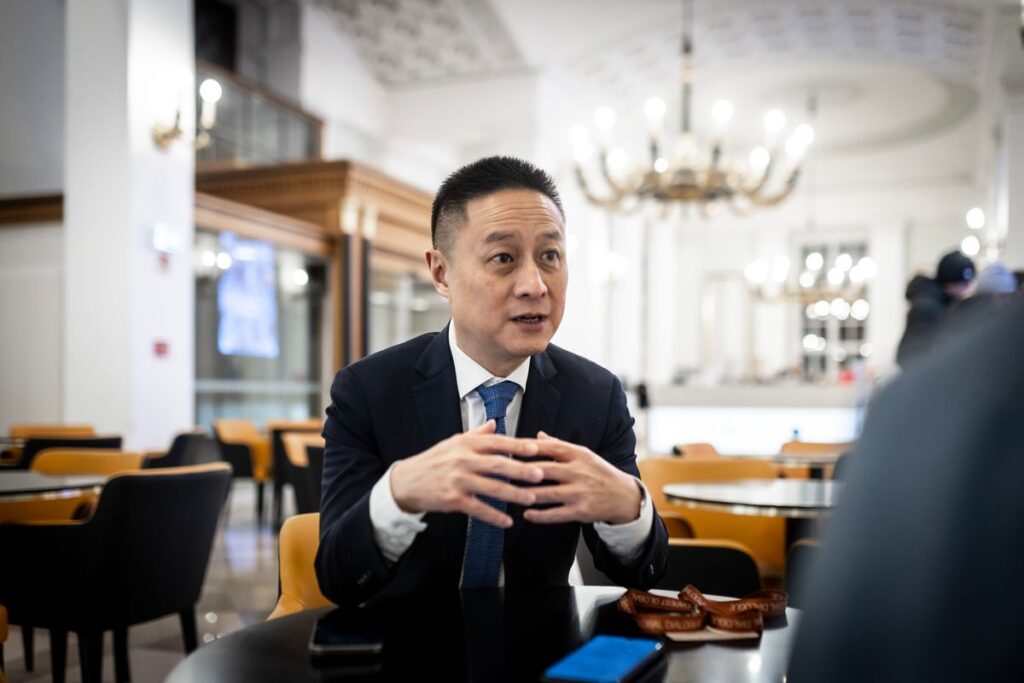
There is a lot of criticism of China from the West, and there is also a policy of increasing blocking by most of the Western countries. Under these circumstances, how can a globalized world order be sustained?
I find it regrettable that the ideological excesses of globalization are now affecting the very economic theory that has brought benefits to the whole world. This is unfortunate and we have to deal with it. I think that there are legitimate concerns about the ideological excesses of the version of globalization represented by the Western ‘champions’. Obviously, things need to be adjusted, but I don’t think the answer is separation. The answer is not decoupling or putting up walls. The answer is to correct cultural, ideological, political, and geopolitical excesses while continuing to promote economic interconnectivity to create better economic conditions for our people.
Hungary has announced strategies of ‘connectivity’ and economic neutrality. What do you think about this?
I believe that small countries have a big role to play in the current situation. The world is currently characterized by intense rivalry between the great powers, and the United States is probably taking a back seat in this. In this kind of environment, I think that smaller countries that can maintain their neutrality are the ones that will win. But the ones that don’t have the willpower and the political autonomy to be neutral—the ones that are actually forced to take a stand—, well, I think, are going to lose the most.
‘Smaller countries that can maintain their neutrality are the ones that will win’
It is apparent that few people in the EU think like Hungary and that a multipolar world order is emerging in which the EU is losing its importance. What questions does this raise from China’s point of view?
I think that Europe is very important for China, especially in light of the US retreat from globalization. China and Europe are important to each other in this environment where both China and Europe need connectivity and trade. They need us to create economic value through the exchange of technology and trade. So, I think it is unfortunate that there are voices in Europe that want to follow the United States. It goes against their own interests and your interests. It’s somebody else’s interests, somebody else’s agenda, or somebody else’s ideology.
The Year of the Dragon is coming to an end and the Year of the Snake is approaching. What changes do you think the new year will bring for the world?
I reckon one thing we can hope for is that US President-elect Donald Trump seems to have no interest in military adventures. For a long time, he was the first president of the United States not to launch a war during his term of office. He is apparently not interested in unnecessary military conflicts. And I hope that is indeed the case. So, I think that’s a reason for hope for a more peaceful world. Of course, there are disagreements in the world, but less military conflict is always good. The other thing I think will have a positive impact on the world in the next year or years to come is the fairly rapid rise of the Global South. We are seeing that everywhere, not just between different countries but also at the institutional level, like the expansion of BRICS this year.
‘All the countries of the Global South want to build a multipolar world where different countries can follow their own development paths’
China, as one of the most important countries in the Global South, has a common interest in promoting economic interconnectivity and globalization without overt ideological and political interference in the affairs of other countries.
Also, of course, there will always be different interests and disagreements, but I believe what they have in common is that all the countries of the Global South want to build a multipolar world where different countries can follow their own development paths while preserving their own political systems, values, and cultures and promoting economic interconnectivity. And I think that this vision, this common vision, transcends differences. This kind of interconnectedness is the key to prosperity.
Read more on China’s global role:
Click here to read the original article.

